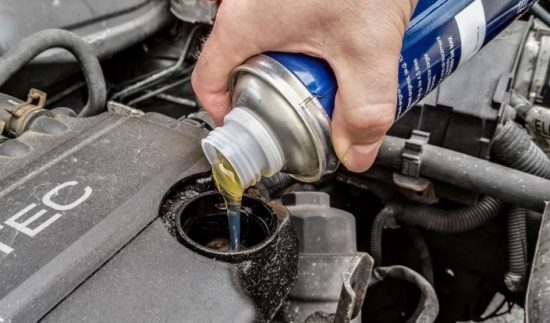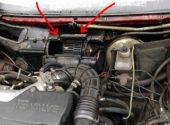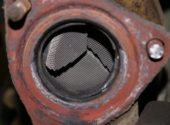Today, the counters of automata and shops in the World Wide Web are broken from a large number of liquids represented, which contribute to the extension of the life of the motor of any car. Some of these funds are the additives for the engine. Additives are capable of performing different functions, increase or reduce the viscosity of the lubricant fluid, purified and protect the surfaces from corrosion, as well as other deposits. For example, there are additives that impede the oxidation, restoring formulations, as well as many others. I want to say only one thing that it is not necessary to fully rely on additives, because in addition to their advantages, they have disadvantages. This article will be discussed, about the pros and cons of the additives of famous brands, as well as you learn what this advertised youth elixir represents.
Content
- Additives for the engine, what it is and why they are needed
- Types of additives and their properties
- The composition of the additives for recovering the engine compression
- Is it possible to add additives to the engine oil
- What practical effect give added additives
- Additive (Supratek) Pros and Cons
- Additive Liquimi Moli Pros and Cons
- Hado pluses and cons
- What a prodigation is better
- Tips Prof.
Additives for the engine, what it is and why they are needed
The additive in commoner is also called the addition to the engine oil - this is a special composition that is designed to increase the characteristics of the car engine and produce a cosmetic repair of its main parts, as well as prevent the emergence of new possible problems.
If you believe advertising from the creators of this miracle of the liquid, then its effect is based on the fact that chemical active microparticles together with engine oil are interpreted into the motor, thereby ensure the effect that was described above. Due to its properties, they create a thin layer of protection, which prevents friction between working surfaces, as well as retain the viscosity of the engine oil, even in high temperatures. Also, manufacturers claim that the additives are performed and the function of the sealant, which in turn can eliminate the leak in a strongly worn out motor.
Types of additives and their properties
Additives can be divided into the following types:
- viscous - increase viscosity and improve the viscosity-temperature characteristic of oils;
- depressators - lowering oil temperature;
- antioxidant - increase oil resistance against air oxidation at high temperatures;
- anticorrosive - reduce the corrosion actions of the oil and protect the metal from corrosion;
- anti-wear - improve the lubrication ability of oil;
- detergents - reduce the deposition of varnishes and naigar on the details of the engine;
- antipients - reduce the ability of oil to foam;
- complex additives or multifunctional - improve several properties at once simultaneously.
The composition of the additives for recovering the engine compression
Compression is an important status parameter and motor wear. Therefore, it is important to know which composition is included in a particular additive. Comprehensive manufacturer composition, you can read directly on the package. Below are generalized types of additives and their composition.
- Remetallizates - contain mild metal ions such as, tin, bronze, copper, cadmium and others.
- Teflon-containing - the name of the additive speaks for itself.
- Metal conditioners. The composition includes mainly sulfur and chlorine.
- Layered friction modifiers. The composition includes tungsten, molybdenum, graphite, and others.
- Friction geomodifiers. The composition includes serpentine, magnesium silicates, amphibole, fortosterite, as well as plasmatic graphite.
Is it possible to add additives to the engine oil
The slogans say that additives bring great benefits of the car, but nowhere does not say that they can also harm themselves. Therefore, before pouring them into gasoline or oil, it is worth carefully re-read the instructions. Our people most often do first, and when something does not work, turn to the instructions, but in this case this placement of priorities will not roll. In the manual it is indicated, in what quantities you need to add a purchased type of additive.
There are several rules:
- If you decide to pour an additive into a benzobak, make sure that gasoline is minimum there.
- Add an additive to the tank before refueling.
- If the additive is poured into the oil, then it is best to make this procedure at the time of replacing the oil itself.
- Add an additive in fresh oil.
- Do not use them too often, follow the manufacturer's recommendations.
What practical effect give added additives
Additives are able to breathe life into an old worn engine, and push the capitals for a while, thereby giving the engine a little more "to live" in his pleasure. With the help of additives, the detonation of the engine is reduced and compression increases. Motor runs softer and even more. Often there are warehouse reviews on these wonders of engineering thought on the network. Fuel consumption decreases, and detonation disappears, and the thrust increases.
Additive (Supratek) Pros and Cons
The most popular additive for the engine is the additive of the soup. Its composition has proven itself in the market. All car owners who managed to use it say that it is the desired additive.
Supports can be called a tribotechnic composition that directly affects all metallic surfaces of the system. The composition of the composition is based on the metal plating composition, and due to this surface of the engine from the resulting plaque and corrosion is cleaned, covered with a thick layer of protection. As a result, all scratches and cracks will be "heated", thereby increasing the resource of the motor. The protective film is formed by minerals of natural origin, which are part of the additives of Supratek. Elementary example, the engine operates on high revs without engine oil for an hour, and the resulting problems will be absent.
Along with the advantages of this additive, there are also disadvantages that the owners of the car often write about the forums. This includes an unpleasant smell, the word is not clear how they feel it, and the high price, as well as that when repairing this very protective film is quite difficult to remove.
Additive Liquimi Moli Pros and Cons
This additive is known all over the world for a long time. It appeared in the 40s, and then actively used for the army and in aviation. Vital systems will always be reliably protected even if the oil loss due to the Molybdenum disulfide. Today, the owners of the car on the diesel engine are actively used by this particular composition, since they consider it the most appropriate.
The additive protects the most loaded mechanisms from wear. The principle of action of this additive is exactly the same as the previous one. If we talk about an additive into diesel fuel, then the moth is considered to be the most stable. It does not dissolve in engine oil, and does not enter the reaction with it.
As with any product, the moth additives also have one fat minus - at high temperatures, Molybdenum disulfide has a melt property, and the end turning into coke sediments. But if your engine works properly, not worn, then the additive of the moth does not carry any threat.
Hado pluses and cons
Hado additives differ from the same Supratek on the principle of action. This additive includes revitalizant granules, which, together with oil, fall into the engine. After that, the "smart" particles are directed to the most vulnerable surfaces and details, form a metal-ceramic layer, and it is only on damaged areas. But Supraptek covers all metal surfaces. Hado additives have proven themselves when problems with the pressure in the engine.
Hado additives have the disadvantages, here you can attribute the high cost of the product, and the fact that according to motorists, the expected effect disappoints, and the fact that some even threatened the engine.
What a prodigation is better
Yes, automotive additives facilitate the life of the motor, but in each situation you need to look at the state of the engine. So, if you have a car from the salon or with a small mileage, then additives from the geomodifier group are perfectly suitable for you. But if the engine with a big mileage, then the help of you will come with potent additives by type of souot, as part of what is "microcramber". The latter reduce the consumption of oil oil, reduce fuel consumption.
The transfusion of a bunch of forums, unwittingly come to the conclusion that car enthusiasts give their preference to moth moth additives, since they passed the test of time, and to date, in the same aviation, additives are based on the molybdenum sulfide already mentioned above.
Tips Prof.
First of all, before using the additive, you must understand that the liquid is not enough to fill into the engine. You will need to make a number of events so that the composition of the additive began its work. Before the fill must be necessary:
- change filters;
- rinse the engine;
- immediately after filling the additives, it is impossible to change the additive immediately, so it is worth it to calculate the time, since the protective film is formed only after 1.5 - 2 thousand mileage kilometers;
- to secure the result, you need to re-fill the additive after 50 - 100 mileage kilometers.
In conclusion, I would like to say that so far no one has yet invented the elixir of youth, and this applies not only to a person, but also of the other, including cars, so it's not worth blindly hope that the additives will heal your engine. Follow the state of your car and do the capitals in time and repair damaged items.
Related Materials
- Stove 2110, bad warm stove 2110, VAZ 2110 heating system, repairing the heating system VAZ 2110 with their own hands
- VAZ 2114 stove blows with cold air, stove 2114, bad warm stove VAZ 2114, device and repair of heating VAZ 2114 do-it-yourself, removing the stove VAZ 2114
- How to subdominize the car. How to put a jack. Types of jacks for cars.
- VAZ 2109 Fuse Block, VAZ 2109 Fuse Block Carburetor, VAZ 2109 Fuse Block Injector, Old VAZ 2109 Fuse Block, VAZ 2109 Fuse Block, VAZ Fuse Block 2109
- Car exhaust gas catalyst, faulty catalyst, pluses and cons of the catalyst, how to change the catalyst on the planeencitel
- Stove blowing cold air VAZ 2114, badly blowing the stove VAZ 2114, why badly blowing the stove VAZ 2114
- How to find out the owner of the car by the number of his car, check the car by the number of the traffic police machine, check the car by the state number of the car for free
- How to choose Used tires, Useful Tips
- Winter car road, pressure in passenger car tires in winter, good battery for the car in winter, whether to warm the car in winter
- In winter, the car is poorly started. How to make a car in winter, do you need to warm up the car in winter, useful tips
- Economy fuel consumption machines, the most economical car consumption
- Tires brands for passenger cars, labeling of car tire labeling, residual passenger car tire protector, how to pick a tire on a car brand, car tire tread pattern
- Working transmission operation, mechanical gearbox clutch work, driving with manual gearbox, useful tips
- Rear beam Peugeot 206 sedan, rear beam device Peugeot 206. Rear beam Peugeot 206 Malfunction, repair of the rear beam Peugeot 206
- Diesel fuel in winter, additive for diesel fuel in winter, how to choose the best diesel fuel
- Diesel winter does not start. How to start diesel in winter, heating diesel in winter.
- Japanese bridgestone tires, winter studded bridgestone tires, bridgestone tires brand
- Tire marking decoding for passenger cars, labeling wheels, how to choose the right tires on the disks
- Diesel engine in winter, launch of the diesel engine in winter, what oil to fill in a diesel engine in winter, useful tips
- LED backlight of the car, the backlight of the bottom of the car, the backlight of the legs in the car, the backlight in the door of the car, the backlight of the car is fine
- Recovered tires, bus tire, restored tire protector, can I use them
- Choose winter tires, which is a winter tires, which pressure in winter tires should be marked with winter tires, how to choose the right winter tires, the best winter tires 2019
- Steering rail rail, knock of steering rack, reasons for the knock and repair of the steering rack do it yourself
- Cameless car tires, a set for repair of tubeless tires, repair of the cannon-free tire do it yourself
- Russian tires, Russian tires Winter, Russian All-season tires, Voronezh AMTEL tires, Tires "Matador Omsk Tire", Kama-tires are world-class bus
- How to open a car without a key. Lost the key from the car what to do, the key from the car inside the car
- Silent tires, quiet winter tires, quiet studded bus, which tires to choose, overview tires
- Tires and safety, safety of the bus, why it is necessary to constantly monitor car tires
- Rules of safe driving of the car in the rain and slush, safe driving of the car for beginners
- Rust converter which is better for cars, rust converters to choose how to use rust transducer, professionals
- Polishing the body of the car do it yourself, how to choose a polishing paste, useful tips
- Engine durability, engine life, how to extend engine life
- Knock in the car. Knock when moving the car. What can knock in the car. How to determine the cause of the knock.
- ABS car, what is ABS car, ABS system malfunction, ABS diagnostics
- Overtaking a car when you can start overtaking a car, rules of traffic rules
- Fuel pump VAZ 2110, VAZ 2110 gas station scheme, VAZ 2110 fuel pump device, VAZ 2110 gas station repair,
- Automotive antennas for radio, automotive antenna device, car antenna do it yourself
- Front suspension Kalina, device front suspension Kalina, knock in front suspension Kalina, repair of front suspension Kalina
- Shock absorber Oil, best oil shock absorbers, pumping oil shock absorbers, how to properly pump oil shock absorber
- Clutch malfunctions, touches clutch, causes a clutch malfunction, how to eliminate













Totk Astra Robot-1 and Astra Robot-2
This is real one of the best additives on the engine processing.